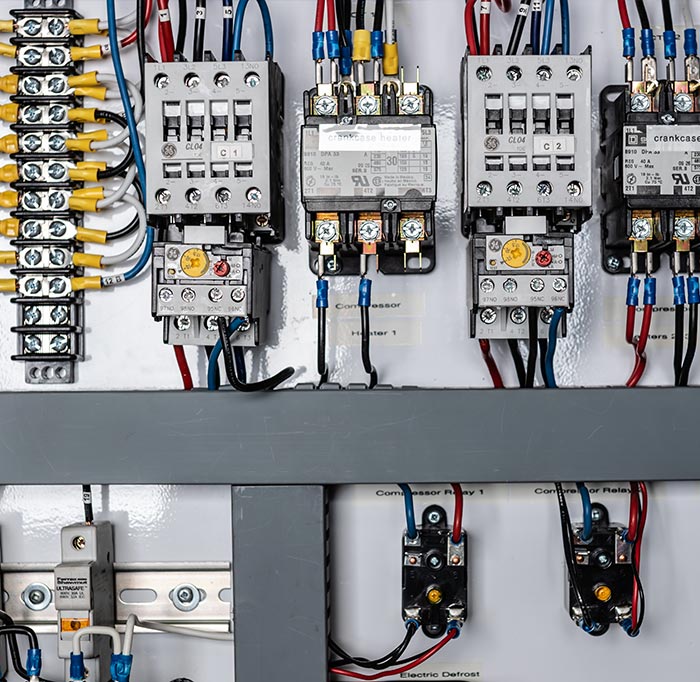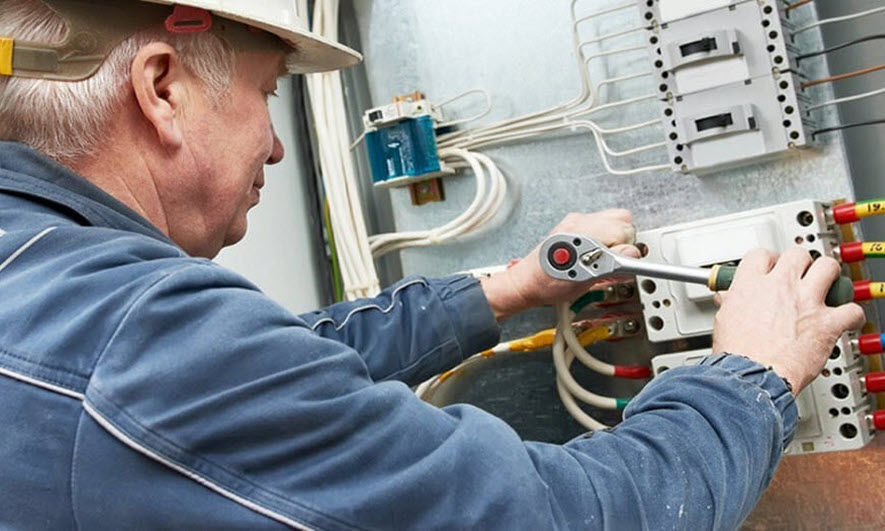Making best use of Efficiency: Just How Licensed Electrical Contractors Boost Industrial Electrical Facilities
Making best use of Efficiency: Just How Licensed Electrical Contractors Boost Industrial Electrical Facilities
Blog Article
The Thorough Function of Industrial Electricians in Ensuring Reliable Power Circulation and Electrical Upkeep in Industrial Settings
The role of commercial electricians prolongs far past fundamental electric jobs; they are important to the security and effectiveness of commercial procedures. Understanding just how their experience not just safeguards functional continuity yet additionally adds to sustainability initiatives elevates essential inquiries concerning the future landscape of electrical maintenance in commercial setups.
Importance of Industrial Electricians
In several commercial setups, the function of electrical contractors can not be overstated. These professionals are essential to the operation and upkeep of electric systems, making sure that power circulation is effective and dependable. Their knowledge not only sustains the day-to-day functioning of manufacturing processes yet additionally plays a vital function in improving total work environment safety. Industrial electricians possess specialized knowledge of intricate electrical systems, consisting of high-voltage tools and automated equipment, which are essential for contemporary industrial operations.
Furthermore, the need for knowledgeable electrical experts remains to expand, driven by advancements in technology and boosted dependence on automated systems. As markets develop, the need for electrical experts who can mount, repair, and maintain advanced electric infrastructure comes to be paramount. Their contributions expand past simple installment; they are vital gamers in ensuring conformity with safety guidelines and market standards, consequently lessening dangers linked with electric failures.
Secret Duties and Duties
Industrial electrical experts often participate in a selection of essential responsibilities that are important to the smooth operation of power distribution systems. Among their main tasks consists of mounting, keeping, and fixing electrical wiring and equipment in industrial settings. This involves guaranteeing that electrical systems abide by safety and security policies and industry standards to stop hazards such as electrical fires or devices failure.
In addition to installment tasks, commercial electrical experts are accountable for repairing and detecting electric problems. They utilize specialized strategies and devices to recognize mistakes in machinery and power distribution networks, making sure that any kind of breakdowns are promptly dealt with to reduce downtime. industrial electrical contractors. Routine upkeep is another critical facet of their function, where they carry out precautionary measures and regular evaluations to keep systems working ideally

Credentials and abilities Called for
Efficiency in electric systems is necessary for industrial electrical experts, as it enables them to successfully navigate the intricacies of power circulation (bre automation). A strong structure in electrical theory, consisting of knowledge of circuits, voltage, existing, and resistance, is essential. Industrial electrical experts must possess a comprehensive understanding of electric codes and laws to make sure conformity with industry standards
Along with technological knowledge, functional skills are extremely important. Effectiveness in troubleshooting and problem-solving allows electricians to diagnose and settle problems successfully, minimizing downtime in commercial operations. Familiarity with numerous tools and equipment, such as multimeters, oscilloscopes, and power analyzers, is likewise essential for effective repair and maintenance.
Additionally, industrial electricians are typically needed to have formal education and learning, usually culminating in an associate degree or completion of an instruction program. These programs give hands-on training and theoretical expertise, gearing up electrical experts with the abilities needed for the field.
Certifications, such as those from the National Institute for licensed electrical contractor Certification in Engineering Technologies (NICET), can even more improve an electrical expert's credentials, showing expertise and commitment to the career. On the whole, a mix of education and learning, practical experience, and technological skills is important for success in this demanding duty.
Safety Specifications and Conformity
Conformity with safety criteria is an essential element of the commercial electrician's function in power distribution. Industrial electricians are entrusted with adhering to a multitude of guidelines and policies established by companies such as the National Electric Code (NEC) and Occupational Safety and Wellness Management (OSHA) These requirements ensure not just the risk-free operation of electric systems but additionally the security of personnel and tools.
To accomplish conformity, electrical contractors should perform routine inspections and upkeep of electrical systems, recognizing potential threats and carrying out corrective steps. This includes correct grounding, circuit defense, and using proper personal safety tools (PPE) By maintaining a thorough understanding of both nationwide and regional codes, electricians can properly reduce threats linked with electrical job.
Furthermore, commercial electricians play a crucial function in training employees on safety techniques and emergency situation treatments. This education promotes a culture of safety and security within the workplace, minimizing the chance of accidents and guaranteeing that all staff members recognize their obligations relating to electric safety and security.

Future Fads in Electrical Maintenance
As modern technology remains to develop, the future of electric upkeep in power distribution is progressively characterized by the integration of wise systems and anticipating analytics. These developments make it possible for commercial electricians to move beyond traditional responsive upkeep strategies, promoting a positive strategy that enhances system reliability and efficiency.
One considerable pattern is the fostering of Net of Points (IoT) gadgets, which promote real-time surveillance of electric systems. This technology allows for the collection of large amounts of data, giving understandings right into tools efficiency and prospective failure factors. By leveraging anticipating analytics, electrical experts can prepare for issues before they escalate, reducing downtime and maintenance prices.
In addition, the execution of innovative automation modern technologies is changing electric upkeep. Automated diagnostic tools can rapidly identify faults and advise rehabilitative activities, enhancing the repair service process. This not only improves feedback times yet likewise reduces human error.
Additionally, the expanding focus on sustainability is driving the development of energy-efficient remedies and renewable resource combination. As industrial sectors progressively take on greener techniques, electrical contractors will play an essential duty in preserving these systems, ensuring that power distribution straightens with ecological standards. In general, the future of electrical upkeep guarantees enhanced dependability, performance, and sustainability.
Final Thought
In conclusion, commercial electricians are vital to the functionality and safety of commercial settings. The duty of commercial electrical contractors will continue to expand in significance.
The role of industrial electrical contractors prolongs far beyond standard electric jobs; they are important to the stability and efficiency of commercial procedures (licensed electrical contractor). Industrial electricians have specialized expertise of complicated electrical systems, consisting of high-voltage devices and automated machinery, which are important for modern-day commercial operations
Moreover, commercial electrical contractors collaborate with designers and other professionals to make and apply effective electrical systems tailored to specific commercial needs.Effectiveness in electric systems is important for commercial electrical contractors, as it enables them to properly navigate the intricacies of power distribution.In verdict, industrial electrical experts are crucial to the functionality and security of industrial atmospheres.
Report this page